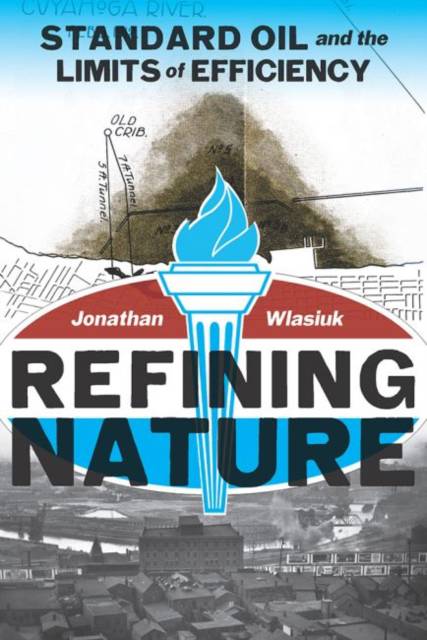
Door een staking bij bpost kan je online bestelling op dit moment iets langer onderweg zijn dan voorzien. Dringend iets nodig? Onze winkels ontvangen jou met open armen!
- Afhalen na 1 uur in een winkel met voorraad
- Gratis thuislevering in België vanaf € 30
- Ruim aanbod met 7 miljoen producten
Door een staking bij bpost kan je online bestelling op dit moment iets langer onderweg zijn dan voorzien. Dringend iets nodig? Onze winkels ontvangen jou met open armen!
- Afhalen na 1 uur in een winkel met voorraad
- Gratis thuislevering in België vanaf € 30
- Ruim aanbod met 7 miljoen producten
Zoeken
Omschrijving
The Standard Oil Company emerged out of obscurity in the 1860s to capture 90 percent of the petroleum refining industry in the United States during the Gilded Age. John D. Rockefeller, the company's founder, organized the company around an almost religious dedication to principles of efficiency. Economic success masked the dark side of efficiency as Standard Oil dumped oil waste into public waterways, filled the urban atmosphere with acrid smoke, and created a consumer safety crisis by selling kerosene below congressional standards. Local governments, guided by a desire to favor the interests of business, deployed elaborate engineering solutions to tackle petroleum pollution at taxpayer expense rather than heed public calls to abate waste streams at their source. Only when refinery pollutants threatened the health of the Great Lakes in the twentieth century did the federal government respond to a nascent environmental movement. Organized around the four classical elements at the core of Standard Oil's success (earth, air, fire, and water), Refining Nature provides an ecological context for the rise of one of the most important corporations in American history.
Specificaties
Betrokkenen
- Auteur(s):
- Uitgeverij:
Inhoud
- Aantal bladzijden:
- 192
- Taal:
- Engels
- Reeks:
Eigenschappen
- Productcode (EAN):
- 9780822965206
- Verschijningsdatum:
- 30/11/2017
- Uitvoering:
- Paperback
- Formaat:
- Trade paperback (VS)
- Afmetingen:
- 150 mm x 226 mm
- Gewicht:
- 294 g

Alleen bij Standaard Boekhandel
+ 152 punten op je klantenkaart van Standaard Boekhandel
Beoordelingen
We publiceren alleen reviews die voldoen aan de voorwaarden voor reviews. Bekijk onze voorwaarden voor reviews.











